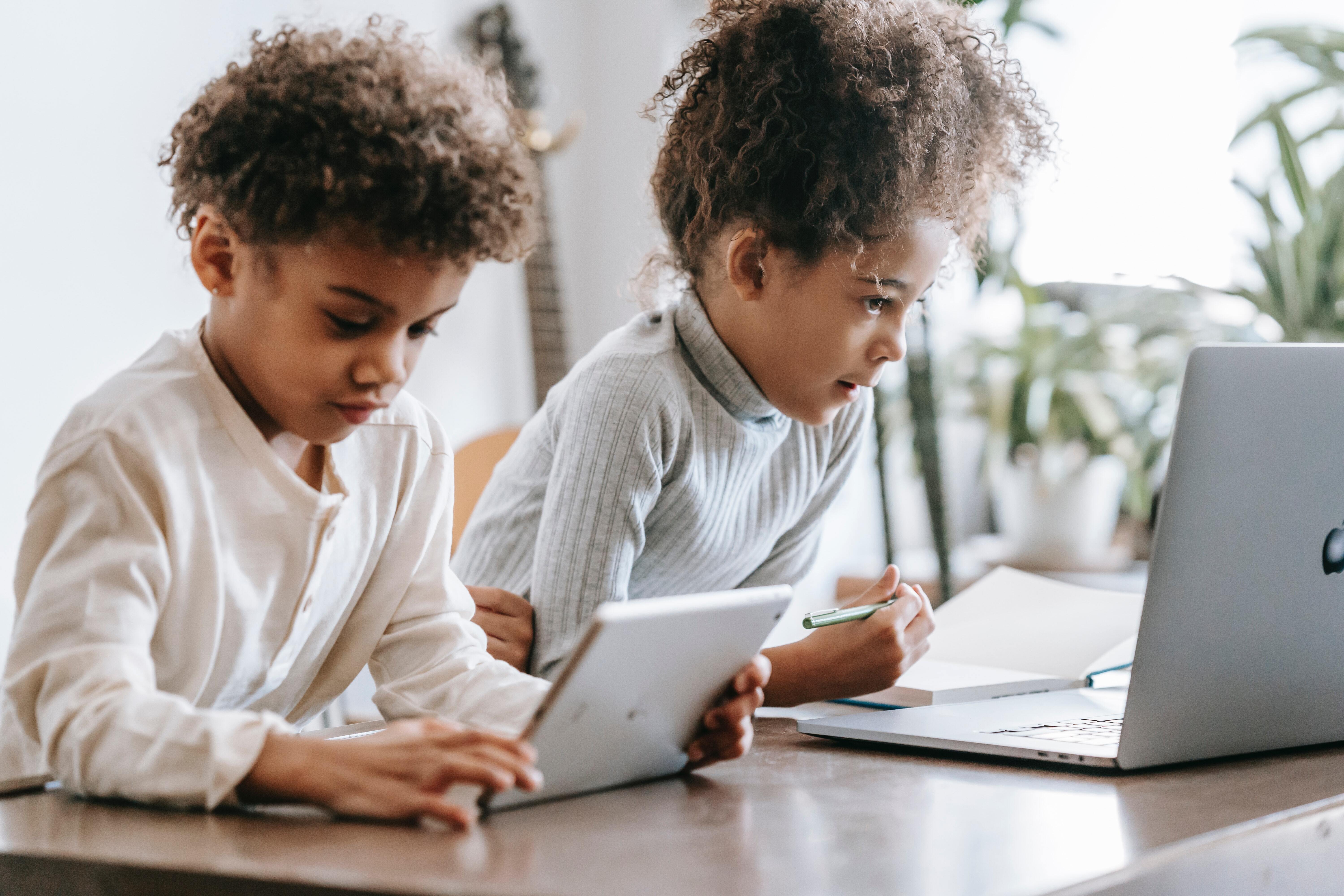
Once a year schools all over the nation choose a week to focus on digital citizenship in their classrooms. This year Digital Citizenship Week is October 17 - 21, 2022.
So what is digital citizenship and why does it matter?
Digital citizenship is the ability to engage positively, critically, and competently in a digital environment. Some of the skills important in digital citizenship include how to effectively communicate and create in a respectful and responsible way on technology.
We all use technology daily and it can be confusing. Especially for young kiddos. By giving students tips and skills for how to use technology in a respectful and responsible way, we can help prevent cyberbullying and cyber breaches, and help guide them to make positive choices.
Here are 6 topics you can focus on during Digital Citizenship Week
1) Digital Footprint
Students should understand that anything they post on the internet is leaving their “footprint.” A digital footprint can be narrowed down into two categories: active and passive.
The active footprints are the ones we submit onto the internet ourselves. For example blogs, social posts, comments, Image/video uploads and many more. Anything they post online is permanent.
The passive footprint is the data collected as we move from website to website. Our online shopping, google searches, games we play, videos we watch, and articles we read are all tracked and part of our digital footprint.
With each active and passive footprint, students should be encouraged to make each digital footprint positive. They can do this by making sure every post is positive, having the proper copyright permissions, only sharing data when it’s needed, keeping passwords private, and sharing when someone is creating a negative space on the internet.
2) Internet Safety
We practice safety daily. We wear seat belts, put on helmets, apply sunscreen, and always look both ways before crossing a road. It’s important to practice internet safety, too.
Good internet safety includes not talking to strangers, keeping personal information private, and being aware and cautious of online scams. Students should learn about the common techniques they can use to stay safe on the internet. These common techniques include:
- Don’t talk to strangers.
- Don’t share your name, address, or any personal information.
- Remember to always log out.
- If you need to use your name, only use your first name.
- Beware of phishing scams. Phishing scams are a type of online attack that is used to steal your information (name, personal information, address, parents’ credit card numbers).
3) Cybersecurity
Having a solid understanding of cybersecurity at a young age can prevent a lot of headaches in their future. It’s important that students learn how to “lock up” their personal and private information on computers and accounts through creating strong passwords, always logging out of computers, and more.
Here are some examples of how students can keep their information safe from a cyber attack:
- Using strong passwords
- Be careful what you download
- Keep personal information private
- Always log out of the computer
4) Cyberbullying
Cyberbullying is a type of bullying or harassment that happens online through mean comments, texts, tweets and more. Students need to learn how to work respectfully with others online and always remember that behind every username is a person. It’s also good for them to learn what actions they can take when they notice cyberbullying.
Some ways students can avoid participating in cyberbullying include:
- Being positive.
- Giving compliments to others.
- Apologizing if you make a mistake.
- Not participating in cyberbullying and telling an adult immediately if you see it happening.
- Not liking or sharing mean comments.
5) Giving Credit to Others
It’s important to give credit to people for the things they do. Any time we use someone’s ideas or work, we must give credit to them. Learning the appropriate ways to give attribution when using others’ work or ideas is a great skill to have.
A good way to help understand the concept of giving proper credit to others can be done through a group project. Give students an activity where each student has a role. At the end of the project, the students must report on who contributed to the project and how.
6) Digital Health and Wellness
As with all things related to health, digital health and wellness is achieved through balance. It’s important to help students find a balance between their digital and unplugged life. While there is much to learn and gain from time spent with technology, there is also a great deal of good that comes from spending time away from it. Putting away a phone or tablet and being bored is a great exercise for students to discover their interests and develop their talents.
There are many other topics and activities you can cover with your students during Digital Citizenship Week.
Skill Struck offers a free Digital Citizenship Course that you can also use. To receive this course, reach out to us at www.skillstruck.com/get-demo.
Leave Your Comment Here